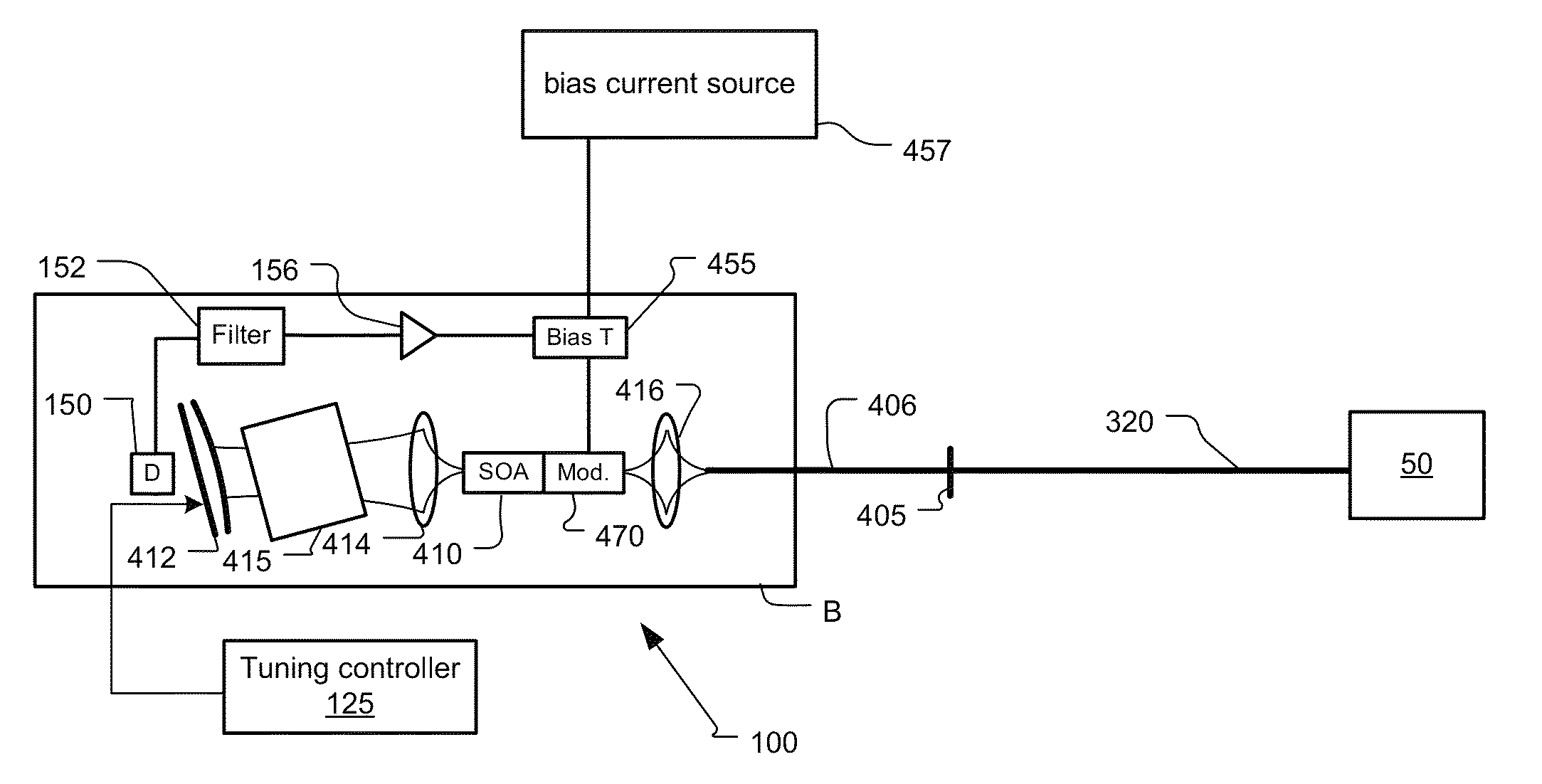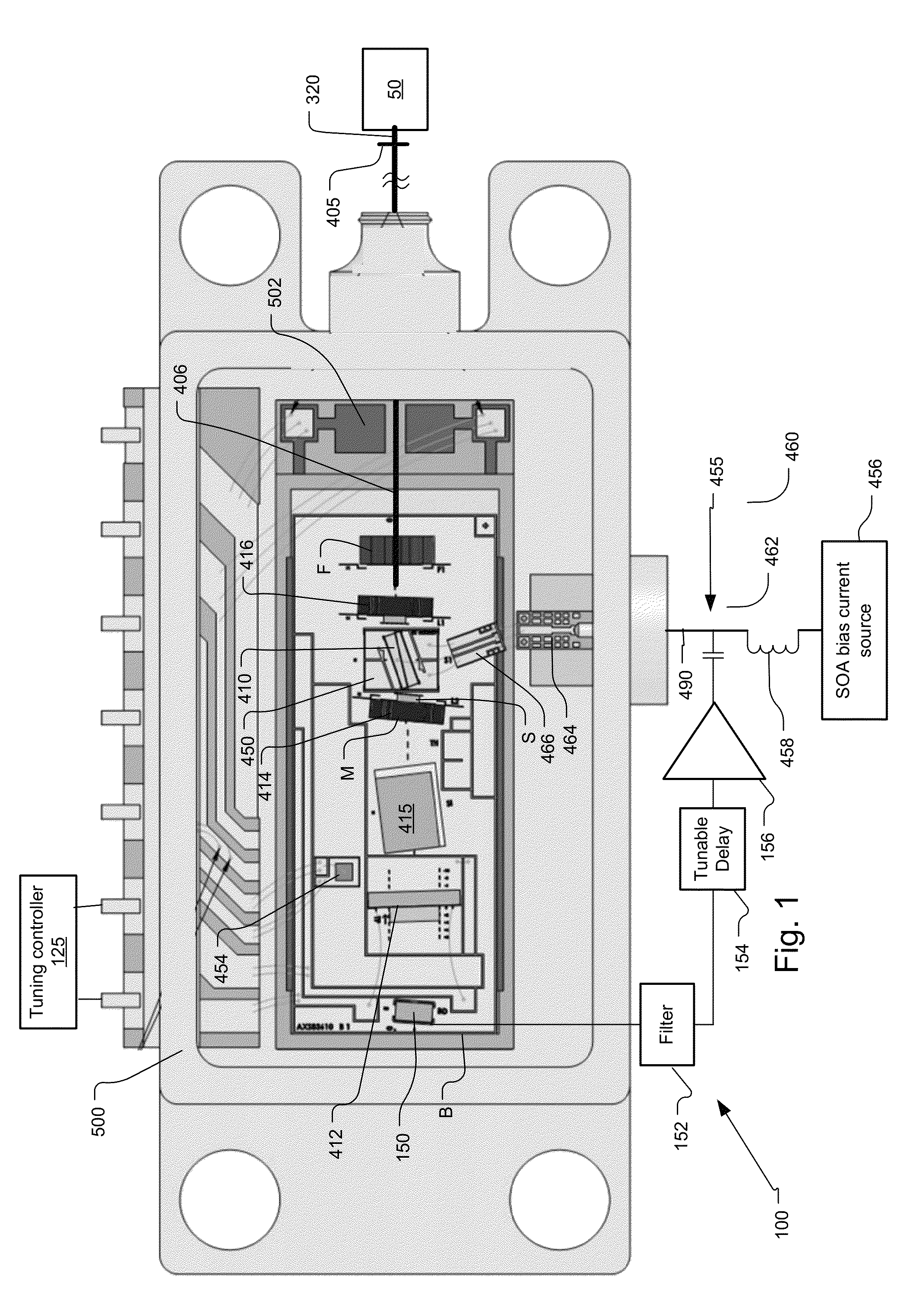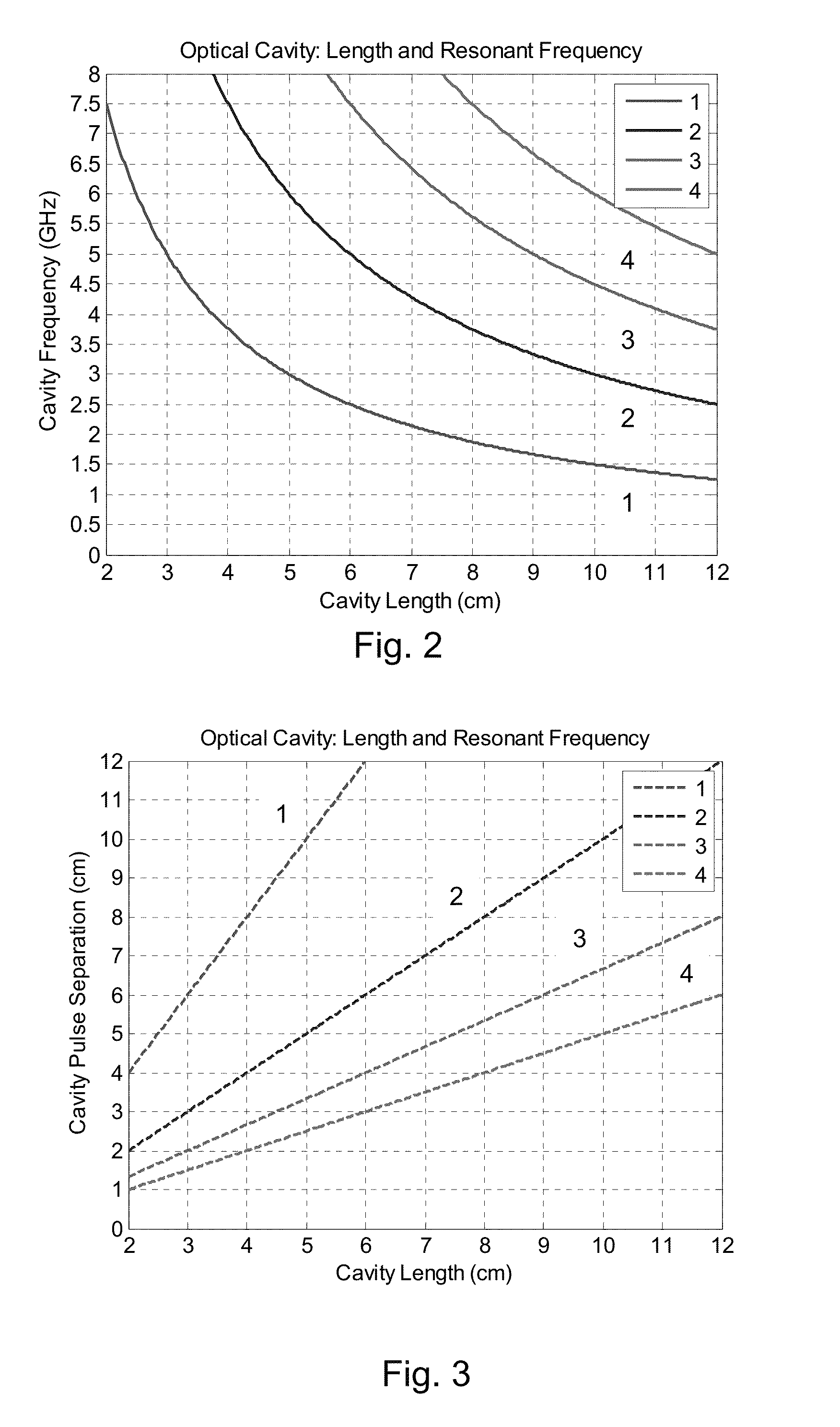Regenerative mode locked laser swept source for OCT medical imaging
a laser swept source and oct technology, applied in semiconductor lasers, instruments, diagnostic recording/measure, etc., can solve the problems of oct system spectral spacing problems, and greater mode hopping noise, so as to stabilize the laser pulsation behavior, avoid noise disruption, and stabilize the emission characteristics of the laser
- Summary
- Abstract
- Description
- Claims
- Application Information
AI Technical Summary
Benefits of technology
Problems solved by technology
Method used
Image
Examples
second embodiment
[0078]FIG. 7 illustrates a second embodiment in which the regenerative mode locking system is implemented on the optical bench B with the components of the laser 100. In this example, the electronic delay in regenerative feedback path is kept small. This reduces or even eliminates the need for the electronic delay 154 in some examples.
third embodiment
[0079]FIG. 8 illustrates a third embodiment in which the regenerative feedback system modulates a phase and / or gain / loss of the optical signals circulating in the laser cavity. In more detail, a phase modulator 470 is added into the cavity, preferably towards one end of the cavity to control the mode locked operation of the laser. In one embodiment, the phase modulator 470 is installed on the bench B between the SOA 410 and the lens structure 416. In the preferred embodiment, it is a semiconductor chip that is integral with the SOA chip 410 and specifically a phase modulation section to which a separate, modulated bias current or Voltage is supplied to thereby yield a two-section SOA (gain, phase). Integrated phase modulators generally work forward biased through current injection, but reverse biased types also exist.
[0080]In other examples, the phase modulator 470 is an external modulator, such as LiNbO3.
[0081]Preferably, the modulation to the phase modulator 470 is generated as de...
PUM
| Property | Measurement | Unit |
|---|---|---|
| length | aaaaa | aaaaa |
| length | aaaaa | aaaaa |
| length | aaaaa | aaaaa |
Abstract
Description
Claims
Application Information
 Login to View More
Login to View More - R&D
- Intellectual Property
- Life Sciences
- Materials
- Tech Scout
- Unparalleled Data Quality
- Higher Quality Content
- 60% Fewer Hallucinations
Browse by: Latest US Patents, China's latest patents, Technical Efficacy Thesaurus, Application Domain, Technology Topic, Popular Technical Reports.
© 2025 PatSnap. All rights reserved.Legal|Privacy policy|Modern Slavery Act Transparency Statement|Sitemap|About US| Contact US: help@patsnap.com



